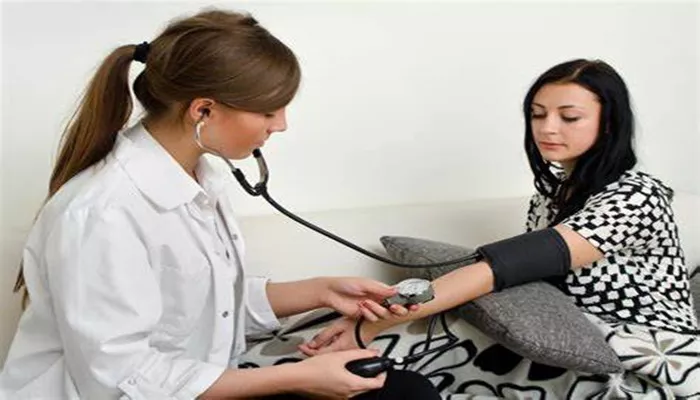High blood pressure, or hypertension, is a common condition that affects millions of people worldwide. It is often referred to as a “silent killer” because it typically has no symptoms but can lead to serious health complications such as heart disease, stroke, and kidney failure. To manage high blood pressure effectively, healthcare providers often prescribe medications. Among these medications, some are considered stronger or more effective than others in controlling blood pressure levels.
In this article, we will explore what the strongest blood pressure medications are, how they work, and their potential side effects. We will also discuss the importance of lifestyle modifications in conjunction with medication for optimal blood pressure control.
Understanding Blood Pressure Medications
Blood pressure medications fall into several categories, each working through different mechanisms to lower blood pressure. The main classes of antihypertensive drugs include:
Diuretics: Often called “water pills,” these medications help the body eliminate excess sodium and water, reducing blood volume and lowering blood pressure.
ACE Inhibitors: Angiotensin-converting enzyme (ACE) inhibitors prevent the formation of angiotensin II, a hormone that narrows blood vessels. By blocking this hormone, ACE inhibitors help relax blood vessels.
Angiotensin II Receptor Blockers (ARBs): These medications block the action of angiotensin II at its receptor sites, preventing blood vessel constriction and lowering blood pressure.
Calcium Channel Blockers: These drugs prevent calcium from entering the cells of the heart and blood vessels, leading to relaxed blood vessels and decreased heart rate.
Beta-Blockers: Beta-blockers reduce heart rate and the force of heart contractions, leading to lower blood pressure.
Renin Inhibitors: These medications directly inhibit renin, an enzyme that plays a role in regulating blood pressure.
Vasodilators: These drugs relax the muscles in blood vessel walls, allowing them to widen and lower blood pressure.
SEE ALSO: Does High Blood Pressure Cause Pain in The Back of The Head
The Strongest Blood Pressure Medications
When discussing the “strongest” blood pressure medications, it is essential to clarify that strength can be subjective and depends on various factors including the individual patient’s health status, other medications they may be taking, and their specific type of hypertension. However, certain medications are often recognized for their potency in controlling high blood pressure:
1. Chlorthalidone
Chlorthalidone is a thiazide-like diuretic that has been shown to be highly effective in lowering blood pressure and reducing cardiovascular events. Studies indicate that chlorthalidone may be more effective than hydrochlorothiazide in managing hypertension and preventing complications such as heart attacks and strokes.
Mechanism: Chlorthalidone works by promoting sodium and water excretion through the kidneys, which decreases blood volume and lowers blood pressure.
Dosage: Typical dosages range from 12.5 mg to 25 mg daily.
Side Effects: Possible side effects include electrolyte imbalances (such as low potassium), dehydration, dizziness, and increased urination.
2. Amlodipine
Amlodipine is a calcium channel blocker that is widely prescribed for hypertension due to its effectiveness in relaxing blood vessels. It is particularly beneficial for patients with both high blood pressure and angina (chest pain).
Mechanism: Amlodipine prevents calcium from entering heart muscle cells and vascular smooth muscle cells, leading to vasodilation.
Dosage: The usual starting dose is 5 mg once daily; it can be increased to 10 mg if necessary.
Side Effects: Common side effects include swelling (edema), flushing, palpitations, and fatigue.
3. Lisinopril
Lisinopril is an ACE inhibitor that is frequently used due to its effectiveness in lowering both systolic and diastolic blood pressure. It is also beneficial for patients with heart failure or chronic kidney disease.
Mechanism: Lisinopril inhibits the conversion of angiotensin I to angiotensin II, leading to vasodilation and reduced secretion of aldosterone (which promotes sodium retention).
Dosage: The typical starting dose is 10 mg once daily; it can be adjusted based on response.
Side Effects: Potential side effects include cough, elevated potassium levels (hyperkalemia), low blood pressure (hypotension), and angioedema (swelling).
4. Valsartan
Valsartan is an ARB that effectively lowers blood pressure by blocking the action of angiotensin II. It is often used when patients experience side effects from ACE inhibitors.
Mechanism: Valsartan prevents angiotensin II from binding to its receptors on blood vessels, promoting relaxation and widening of the vessels.
Dosage: Initial doses typically start at 80 mg once daily; adjustments can be made based on efficacy.
Side Effects: Side effects may include dizziness, fatigue, headache, elevated potassium levels, and low blood pressure.
5. Ramipril
Ramipril is another ACE inhibitor known for its strong antihypertensive effects. It has been shown to reduce cardiovascular risk significantly in patients with hypertension.
Mechanism: Similar to lisinopril, ramipril reduces levels of angiotensin II.
Dosage: The usual starting dose is 2.5 mg once daily; it can be increased based on response.
Side Effects: Side effects are similar to those seen with other ACE inhibitors.
Factors Influencing Medication Choice
Choosing the right medication for hypertension involves considering several factors:
Patient’s Age: Older adults may respond differently to certain medications compared to younger individuals.
Comorbid Conditions: Conditions such as diabetes or heart failure may influence medication choice. For example, ACE inhibitors are often preferred for patients with diabetes due to their renal protective effects.
Ethnicity: Some studies suggest that certain antihypertensive classes may work better in specific ethnic groups.
Previous Medication Response: If a patient has previously taken a particular medication without success or with adverse effects, alternatives will be considered.
Conclusion
Managing high blood pressure effectively requires a comprehensive approach that includes both medication and lifestyle modifications. While there are several strong antihypertensive medications available—such as chlorthalidone, amlodipine, lisinopril, valsartan, and ramipril—the choice of medication should be tailored to each patient’s individual needs and health conditions.
Related topics:


